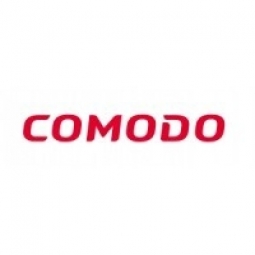Applicable Functions
- Quality Assurance
Use Cases
- Retail Store Automation
About The Customer
Hayneedle.com, formerly known as NetShops, is an online retailer specializing in home décor. The company operates 220 specialty home décor sites, offering a wide range of products to a diverse customer base. Since its establishment in 2002, Hayneedle has grown rapidly, ranking #83 on the Internet Retailer 500. Despite its success, the company recognized the ongoing need to build and maintain trust with its customers, particularly in the context of online transactions. This led to their decision to implement Comodo's security solutions across their websites.
The Challenge
In the highly competitive online retail industry, particularly in the home décor sector, establishing trust with potential customers is a significant challenge. With a wide range of e-merchants, from national retailers to small, one-person businesses, consumers often experience anxiety about who they can trust for their online purchases. Successful e-merchants understand that while effective advertising, a well-merchandised site, and competitive pricing are important, converting visitors to buyers, especially for non-national brands, also requires establishing a level of trust. This is particularly crucial for online transactions where customers need to feel secure in sharing their personal and financial information.
The Solution
Hayneedle.com, a home décor e-merchant since 2002, recognized these potential trust issues and decided to address them by implementing Comodo Extended Validation (EV) SSL and the Comodo Secured Trustmark across its 220 specialty home décor sites. The Comodo EV SSL Certificate turns a visitor's browser address bar green at the secure checkout page of any of Hayneedle's sites. This provides a visual reassurance to the customer that the site is trustworthy and that their transaction data is encrypted and secure. By using the Comodo Secured Trustmark, Hayneedle further reinforces its commitment to security and trust, providing an additional layer of confidence for its customers.
Operational Impact

Case Study missing?
Start adding your own!
Register with your work email and create a new case study profile for your business.
Related Case Studies.

Case Study
Transforming Building Management with IoT: A Case Study on Learnd
Buildings, like living organisms, consist of multiple systems that need to function seamlessly round the clock. However, maintaining aging equipment and facilities, dealing with utility issues, and controlling costs are ongoing concerns in the buildings industry. These challenges often undermine the well-being of the end-users, leading to dissatisfaction and lower performance. The various components of buildings usually have a long lifespan, and their management involves high risks and unexpected pitfalls. This situation leaves organizations struggling to focus on their core business while delivering a high-quality experience for end-users.

Case Study
Global Connectivity and Single Point-of-Management for Digitalli's IoT Deployment
Digitalli, a Paris-based audiovisual communication company, specializes in creating, designing, and producing point-of-sales films and adverts for luxury retailers. The company faced a significant challenge in monitoring its installed equipment to ensure its proper functioning. Any sudden malfunction could negatively impact the consumer experience, the visual aesthetic of a store, and ultimately, sales and brand image. Regular maintenance checks and fixing screens during unexpected outages proved to be expensive. Digitalli sought an IoT solution with an advanced management platform for remote monitoring of all network assets. However, deploying an IoT solution in a retail environment was not straightforward due to the need for multiple internal approvals and security clearances. Digitalli wanted to implement a cellular connectivity solution to connect its assets independently of its retail partners' systems. However, managing multiple SIM vendors and product inventories, tracking costs across different jurisdictions, and monitoring data consumption posed significant challenges.
Case Study
Revamping Retail Pricing Strategies with Real-Time Competitor Analysis
The client, a leading luxury store chain operating in over 100 countries, was facing challenges in analyzing the pricing policies of their competitors. They were using a third-party platform to retrieve competitors’ pricing data to develop their own pricing strategies and increase sales. However, the platform had limitations in expanding the number of competitors in pricing reports and had an insufficient accuracy level. The products mentioned in the reports matched the client’s products only by 70%. Moreover, the solution did not meet the client's accuracy requirements as it generated reports only on a daily basis and lacked real-time reporting. The client needed a solution that could provide near real-time reporting and more accurate competitor pricing data to improve their pricing strategies.
Case Study
Leveraging IoT Software Solutions for Revenue Growth and Efficiency in Retail
PrettyLittleThing, a UK-based fashion retailer, was experiencing rapid business growth and expansion into new markets. This growth presented a challenge as the company needed to become more effective at matching the needs of their quickly increasing customer base. To achieve this, they needed to develop, scale, and improve several software solutions. The company aimed to scale existing software products, add new features, and ensure their solutions' high performance and security. This would help them effectively match the needs of the growing customer base, resulting in higher customer satisfaction, retention, and attraction.





